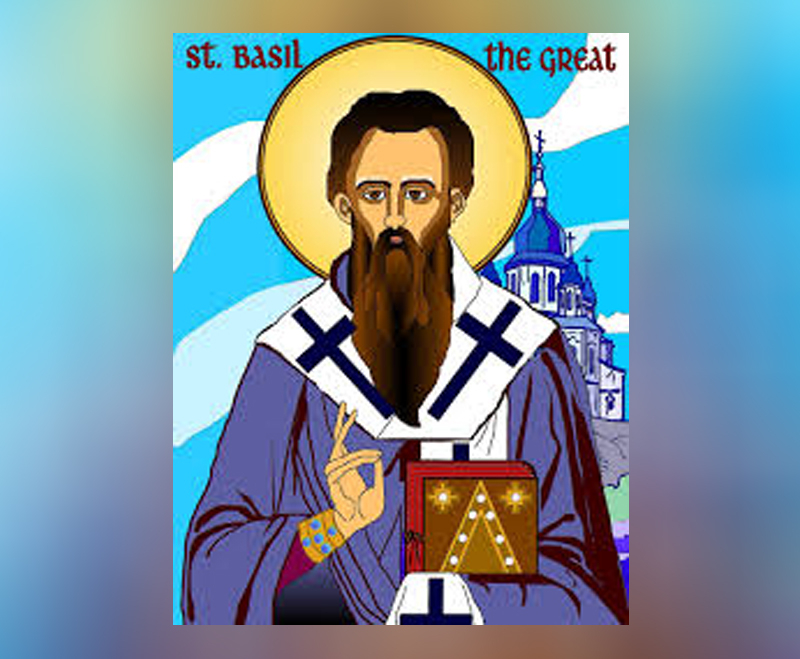
The Prayer Groups are constituted to ascertain the inculcation of true Orthodox Christian faith, love and brotherhood in the church and provide the spiritual upliftment of the people. The Prayer Groups are named after different saints in Church. The Prayer Groups are organized on an area basis and each unit meets every Friday evening at the residence of the members at convenient timings. Bible readings, study classes, intercessory prayers for various reasons and message by Achen are regular activities of these prarthana yogam.
ST.BASIL
The three great lights who are so often referred to as the Three Cappadocians are Basil the Great of Caesarea, his friend Gregory of Nazianzus, and his own brother, Gregory of Nyssa. Basil the Great is the senior venerable member among them. He was the first ascetic leader of the Eastern (Greek) Church tradition. Also called Second Athanasius, he proved his personality not only in the ascetic movement but also in the realms of Church administration and theology. Basil was one among the ten children of a rich family of Caesarea in Cappadocia around AD 330. His father, Baselius, was known, as a scholar and eminent writer throughout Cappadocea. His mother Emmelia was the daughter of a martyr. Of the ten children in the family, three became bishops: Basil himself, made bishop of Caesarea in 370, Gregory, bishop of Nyssa, and Peter, bishop of Sebasty. The eldest sister Macarena became a nun and started a nunnery. As a student in Athens, Basil first met Gregory of Nazianzus, joining with him in a friendship so close that in his eulogy to basil in 381 AD, Gregory could you say that they were one soul with two bodies. In 359, he became a monk. He traveled through Syria and Egypt to study the life of monks. He came back, sold his property and other belongings and gave the money to the poor. He started a hermitage on the bank of the river Iris. It was a delectable piece of land. The number of hermits gradually increased and Basil formulated a few rules for them. During this time, Gregory of Nazianzus visited him and together they codified Origen's Spiritual exhortations under the title Philokalia. They also reformed and enlarged the rules for monks. By this time, Eusebius (not the historian Eusebius) of Caesarea heard about Basil and invited him to be his assistant. Basil agreed. Eusebius ordained him a priest and gave him the responsibility of the diocesan administration. Basil was to him a good councilor, a skillful helper, an expounder the Scripture and interpreter of his duties. After the death of Eusebius, Basil became the bishop of Caesarea. As the Metropolitan, he assumed the charge of administration of Caesarea and the whole of Pontus. Basil emphasized two things in administration: – protection of true faith and social activities. He fought against Arius' heresy, Macedonianism and Apollinarianism.He found many abuses to be corrected including the simony and the laxity ordination, and faced a good deal of opposition. Finally, he brought the clergy of Caesarea into a high standard of life. He undertook great social relief works. Among the Church Fathers, there seems to be none who gave more importance to social activities than Basil did. He established hospitals, Rest houses and centre to give training in jobs. He also started institution to help those who suffer from famine and poverty. After a life of hard works, he died on 1 January 379.